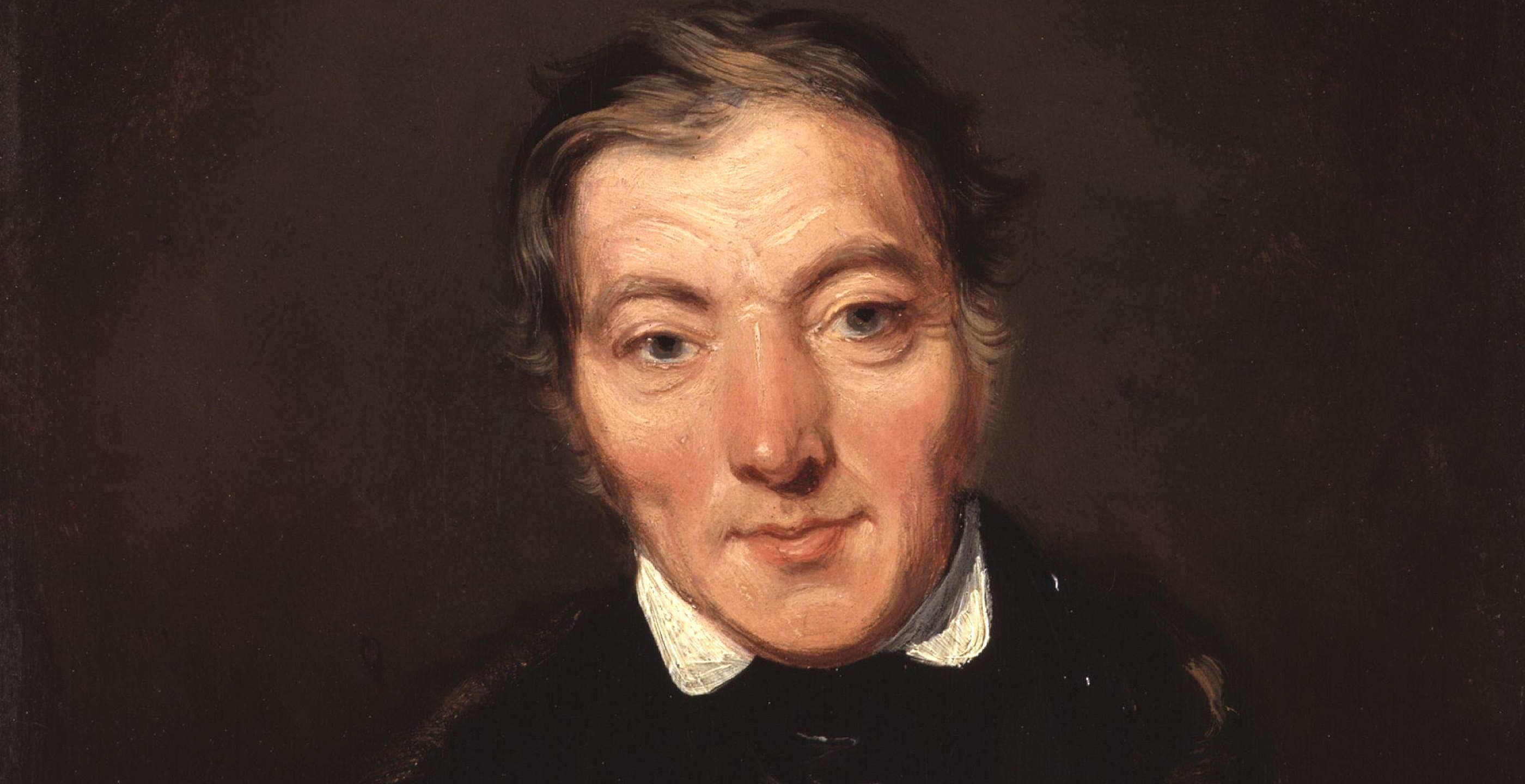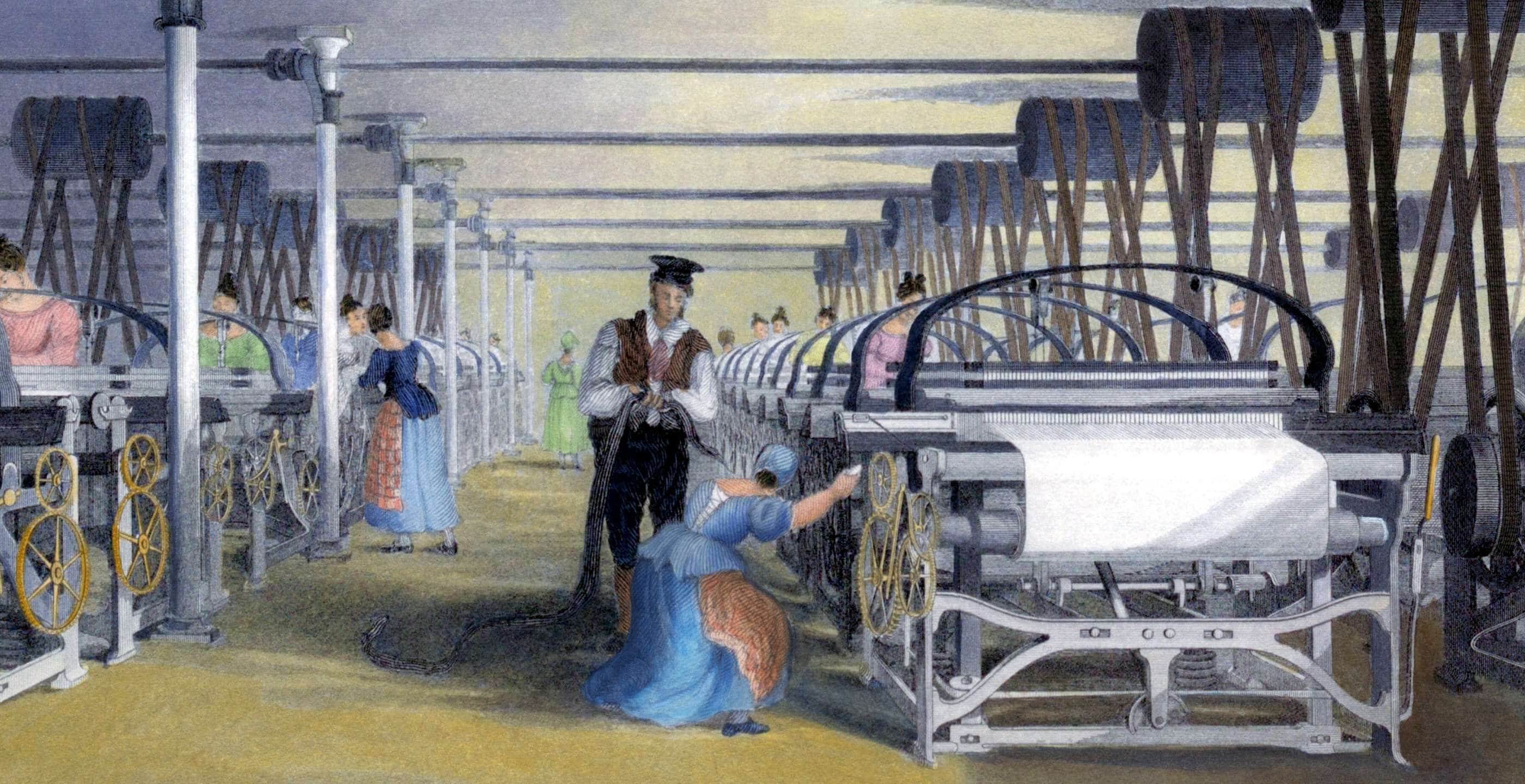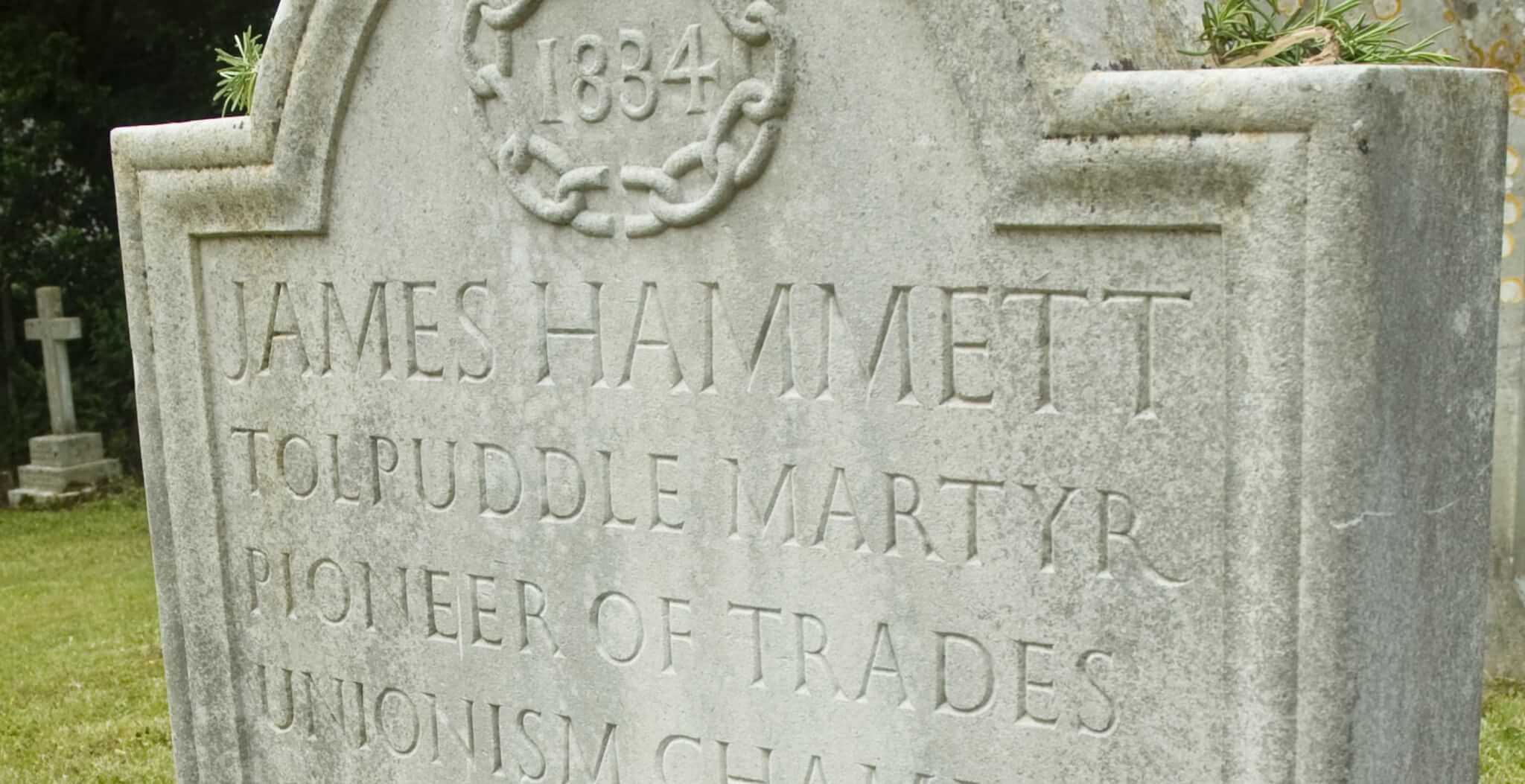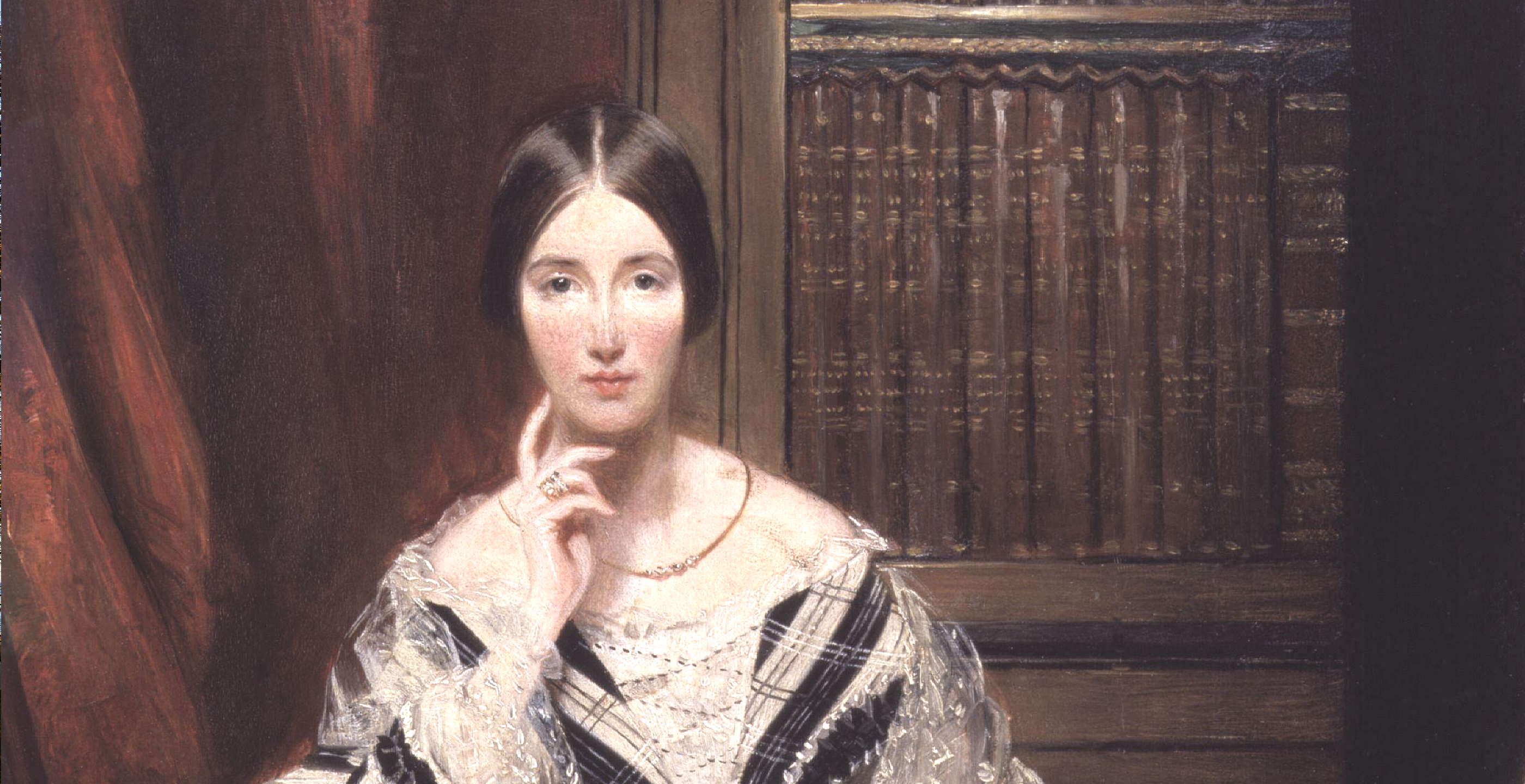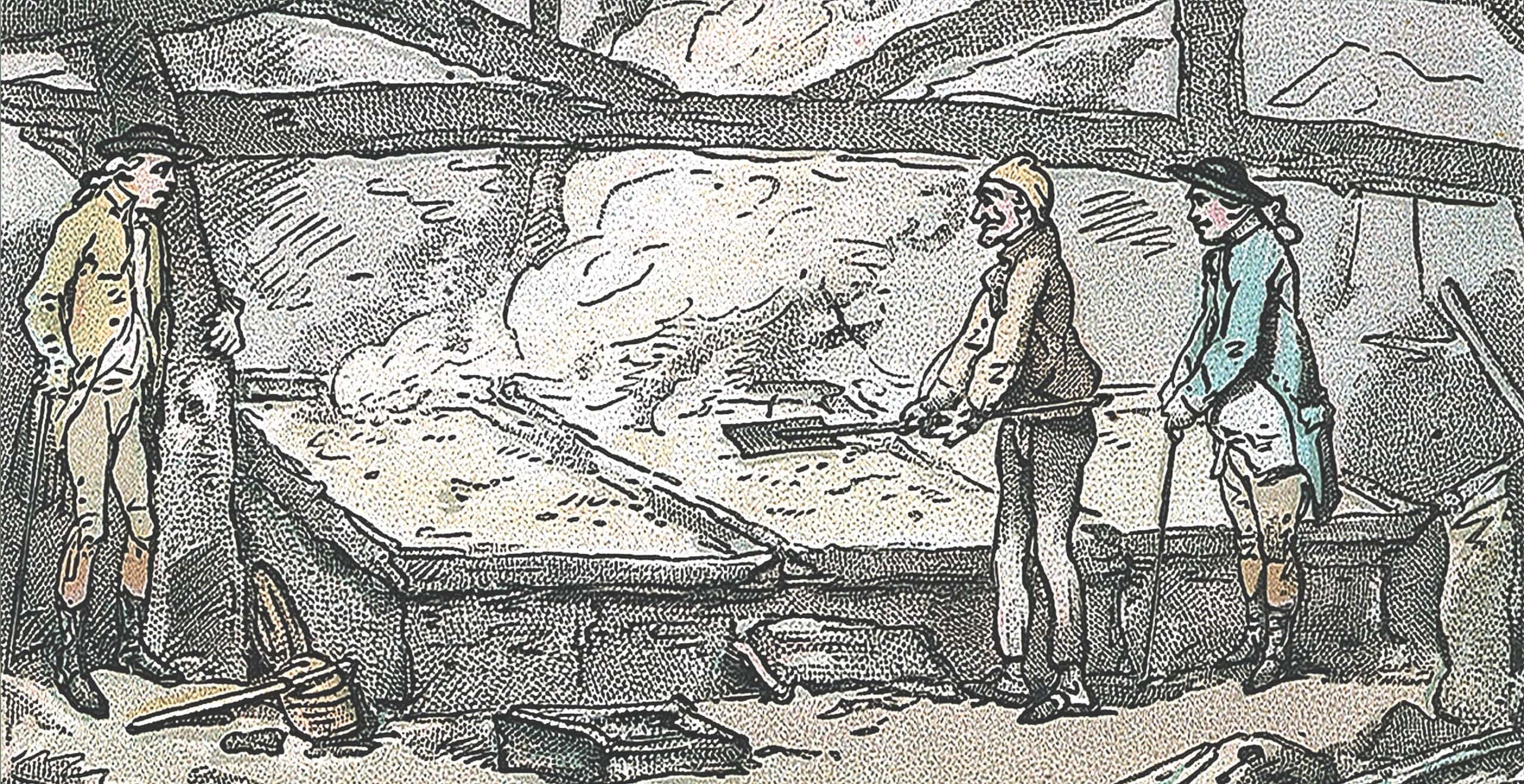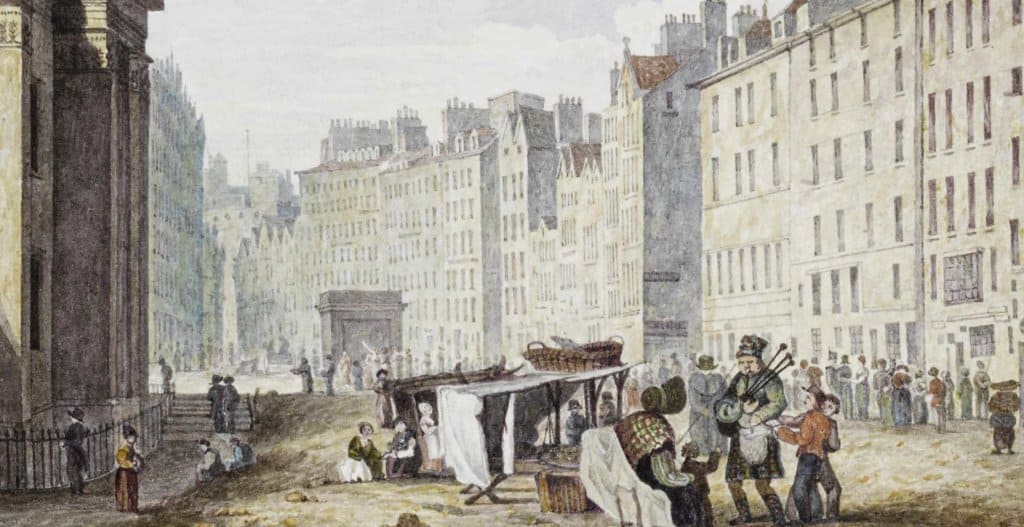Robert Owen was born on 14th May 1771 in Newtown in Wales, although his career and aspirations would take him as far away as America. He was the sixth of seven children born to Robert Owen (Senior) who was an ironmonger, saddler and postmaster. At only ten years old he was sent to work in the textile industry, and by 19 he had started his own business. He borrowed £100 and began his life as an entrepreneur and social reformer. He became known as the ‘Father of British Socialism’ and Owen was, in many ways, centuries ahead of his time with his ideas of a workers’ utopia, socialist reform and universal charity. He had been an avid reader from a young age with a questioning intellect and a thirst for industry and improvement.
Owen was a firm advocate of the Enlightenment ideas of the time, being particularly interested in philosophy, morality and the natural state and goodness of man. In this way he concurred with many Enlightenment thinkers of the time, such as David Hume and Francis Hutchinson (although he arguably would have disagreed with Hutchinson’s emphasis on the importance of personal and private property). Friedrich Engels was also a fan of Owen’s work and attributed all of the contemporary advances in workers’ rights and conditions, albeit indirectly, to the ideals started by Owen.
As early as 1793 Owen became a member of the Manchester Literary and Philosophical Society, where he could flex his intellectual muscles. Thought alone was not enough for Owen, who was concurrently a committee member of the Manchester Board of Health, which was concerned with actual improvements to health and working conditions within the factories. Owen had many beliefs, but he was also someone who actioned what they believed in in the way that he lived his life.
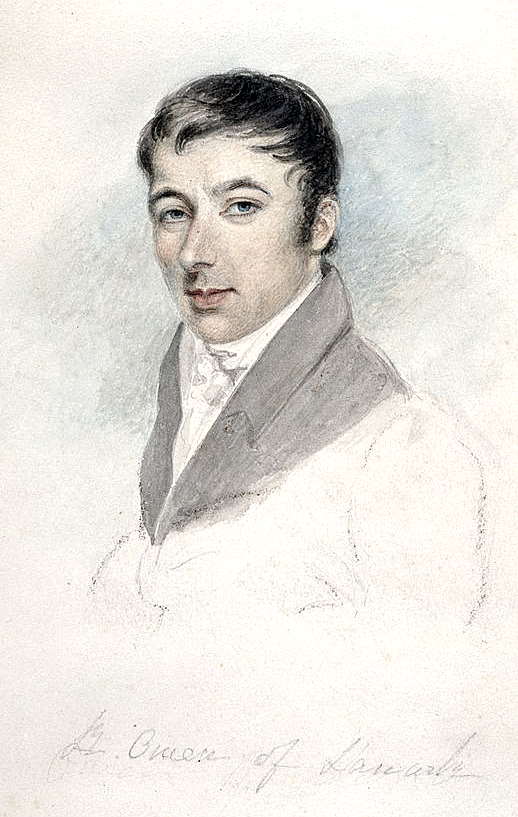
Between the ages of 10 and 19 Owen worked in Manchester, Lincolnshire and London, but then in 1799 a unique opportunity arose that was going to define Owen’s legacy. Not only did he marry Caroline Dale, the industrialist and businessman David Dale’s daughter, but he also bought David Dale’s textile mills in New Lanark. There was already an industrial community attached to the mills at the time, numbering between 2000 and 2500 workers from Edinburgh and Glasgow. Shockingly some of the workers at the time were as young as 5 years old. In 1800 these four giant cotton mills were the largest cotton spinning manufactures in Britain. Although Dale had been considered a benevolent and humanitarian employer by the standards of the time, for Owen it was not enough. Some children were said to be working up to 13 hours a day in the mills and their education was nominal to non-existent. So Owen immediately set about changing this.
He began a comprehensive program of social and educational reforms. One of these was the introduction of the first infant school in the world in 1816! He also created a creche for working mothers, free education for all of his child labourers and children of labourers, and universal healthcare for his workers, as well as evening classes for adults. Owen also restricted child labour to only children who were over ten years of age.
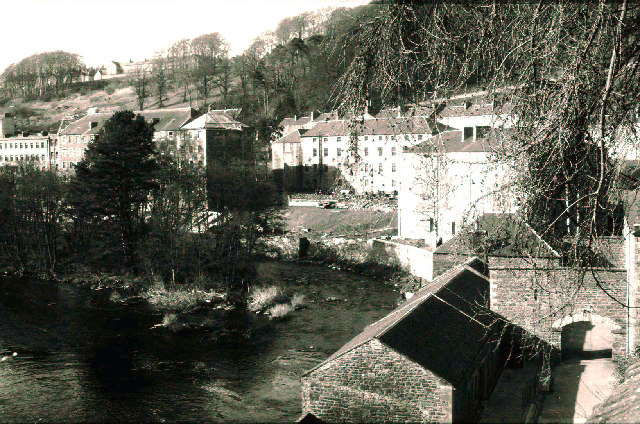
Owen believed in collective good and cooperation. Unfortunately, some of his partners in this venture did not share his beliefs or his enthusiasms. However, he was able to buy them out with money borrowed from the Quaker Archibald Campbell, and run the mills as he thought best. He was proven right, as profit failed to suffer even with the added expenditure on better conditions for the mill workers. His approach is reminiscent of (if over 100 years earlier than) that of Franklin D. Roosevelt when he said in his 1933 ‘Statement on National Industrial Recovery Act’, that “no business which depends for existence on paying less than living wages to its workers has any right to continue.”
Although Owen was not advocating a ‘living wage’, he was advocating a humane living standard for all. This humanity extended into his ideas on punishment. He prohibited corporal punishment in his mills. He felt that if you removed pain, fear and trial from human existence then humanity would flourish. In fact, he said as much to his own workforce. Owen wrote and made speeches on many things throughout his life, but is arguably most famous for what he said in his ‘Address to the Inhabitants of New Lanark’ which he delivered on New Year’s Day 1816. He said:
“What ideas individuals may attach to the term “Millennium” I know not; but I know that society may be formed so as to exist without crime, without poverty, with health greatly improved, with little, if any misery, and with intelligence and happiness increased a hundredfold; and no obstacle whatsoever intervenes at this moment except ignorance to prevent such a state of society from becoming universal.”
Owen was also very much against organised religion, believing that it bred prejudice and division. He envisioned instead a kind of universal charity for the entire human race. This again corresponded with some of the most prominent Scottish Enlightenment thinkers of the time, although it also gained him a lot of criticism, as society was still by-and-large extremely religious at this time.
By the 1820s Owen was not content to only better conditions in New Lanark, so he set his sights to the West. Although his ideas had been widely discussed within Britain, many delegates from Europe had visited his factories and he had actually been invited to address a parliament select committee, he wanted to spread his message even further.
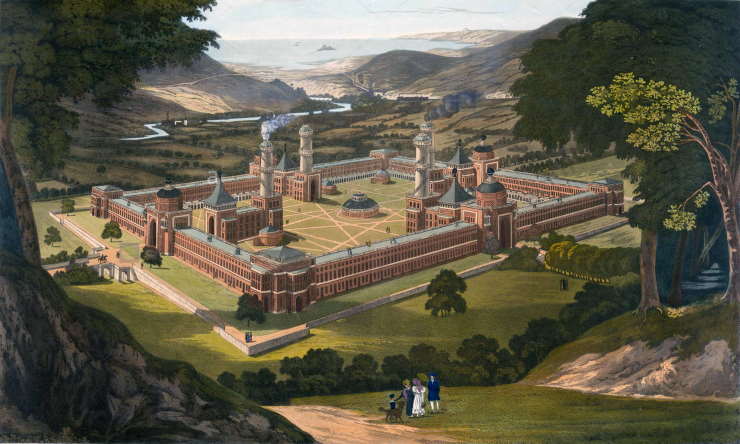
Owen had visions of a real self-sufficient co-operative founded in these values. In pursuit of this he bought around 30,000 acres of land in Indiana in 1825, and he called it ‘New Harmony’, and tried to create a cooperative workers utopia. Alas, it was not to be. Unfortunately the cooperative community fragmented and then stagnated. Owen tried again in Hampshire and other parts of the UK and Ireland in the 1840s; he had some success in Ralahine, County Clare, Ireland, but the cooperative there also disbanded after just three years. His ideas were perhaps founded too much in the idea of a benevolent and philanthropic capitalist class kick-starting the change, a kind of modern ‘noblesse oblige’. However, the contemporary capitalist class’s benevolence was, unfortunately, not forthcoming. Owen did found some successful socialist and cooperative groups, however, such as the Grand National Consolidated Trade Union of 1834 and the Association of All Classes of All Nations in 1835, cementing his credentials as an early socialist.
Robert Owen died on 17th November 1858 at the age of 87 in his hometown in Wales. It was only after his death that his idea of a co-operative became a success in Rochdale, Lancashire. However, his legacy of workers’ rights, cooperatives, healthcare and education lives on today. In fact, you can even go and visit the historic village of New Lanark in Scotland which is now a World Heritage Site, and his legacy of ideals continue to inspire others worldwide.
By Terry MacEwen, Freelance Writer.
